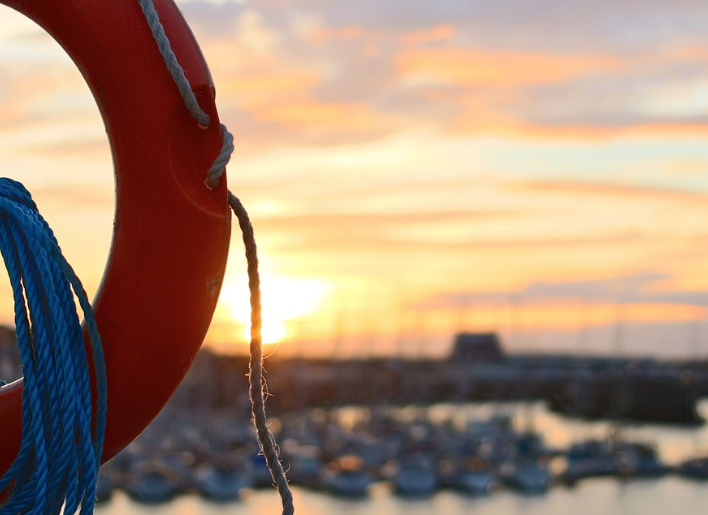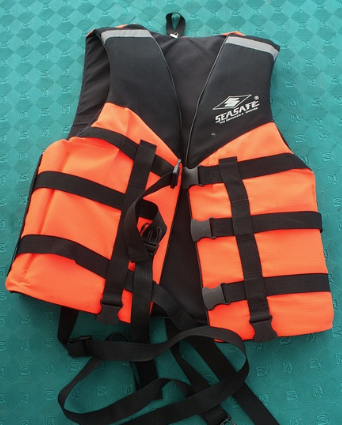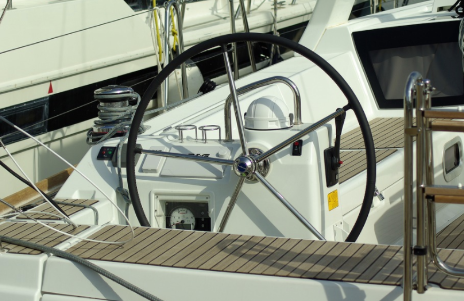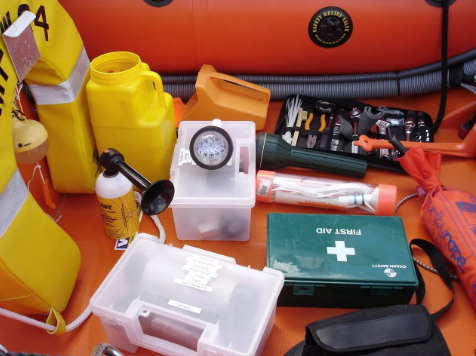Wind blowing in your face, salt water on your skin, and nothing but the open ocean before you. The summer season brings all of these wonderful things and more. If you’re an avid RI boater and enjoy spending the summer on the water, you’ll do anything and everything to keep yourself up to speed on all the latest regulations to keep your boat running. So, let’s glide into a few important regulations concerning the safety of your boat in Rhode Island.

Should I Schedule a Boat Safety Check When I Register My Boat?
As the warmer months roll in, many people are purchasing boats and preparing them for a summer on the water. Just as all new cars must be registered by their owners, boats must undergo the same process. When registering your boat, be advised that registration fees vary by the length of the boat. According to DEM Rhode Island, a boat that is between 1-15 feet in length has a two-year registration fee of $32 while any boat over 50 feet has a two-year registration fee of $620. Boat registration also occurs during a specific time of the year running from March through the last day of February of the following year.
Vessel safety checks are mandatory and unavoidable and often go hand in hand with registering your boat. With that in mind, the sooner you get it inspected, the better!
What Does a Boat Inspection Consist of?
Boat safety checks aren’t meant to make your life harder, on the contrary, they’re meant to keep you and your passengers safe in case of an emergency. Just like your car needs to be equipped with working seatbelts and airbags, so does your boat. Here are a few things Auxiliarists look for while conducting vessel safety checks:
- Life Jackets – Having life jackets on your boat is a first and foremost! In fact, according to boat laws in Rhode Island, “children under 13 years old must wear a Coast Guard approved jacket unless they are below the deck or in an enclosed cabin.”

- Registration and Numbering – When it comes to proper documentation, boats are a lot like cars. Correct registration and numbering are yet another one of the similarities between the two. This important requirement is the same as getting a license plate for your car, except that it’s for your boat. This is a must-have and can not be avoided. Once you register your boat in your given state, much like registering your car at the local DMV, the state of Rhode Island will give you a registration number that serves as proof that you actually registered your boat legally. This number is what facilitates the authorities to know that the boat you are operating is your boat. Once you obtain your registration numbers, make sure it is affixed to your boat on the front half in a visible place.
- Fire Extinguisher
– Closed compartments where fuel tanks reside– Has a double bottom that isn’t sealed to the hull
– Closed living spaces
– Has permanently installed fuel tanks
– Has an inboard engine
You never know when a fire could occur so an extinguisher is not a bad thing to have in your boat in the unfortunate event of an emergency. Make sure that it’s in a visible place that can be reached easily.
- Navigation Lights – These little lights are by far one of the most important features on your boat. They are designed to aid you in letting other boaters know where you are on the water so you don’t collide with one another if you’re sailing at sunset or sunrise, or if there is low visibility. These lights are like the turn signals that you have in your car letting others know where you’re going. They’re usually red and green, for port and starboard, and either one or two white lights as well. However, even with these fancy navigation light systems, it never hurts to have a good old-fashioned flashlight on-board just in case one of your lights burns out.
- Ventilation – If your boat has an engine and uses gasoline, then this is of utmost importance. A good ventilation system is what helps clear out and get rid of all of those toxic and flammable fumes that build up as your boats’ engine is running. Without a properly functioning ventilation system, you could be subjecting yourself, and your passengers to a dangerous explosion.

- Distress Signals – You never know when you might end up in an emergency situation. That being said, distress signal equipment must be present on your boat just in case. According to Boaterexam.com, these are any type of visual signals that can be visible during the day and night. This includes flares, sea dye, or even buoyant flares. It is important to note that these signals are not meant to be used for entertainment, but emergency purposes. It is actually against the law to use distress signals unless you are actually in distress.
- Battery Covers and Connections – Batteries and water do not mix, therefore, having proper battery covers or boxes is important when it comes to boat safety. These boxes are usually made with rubber so as to not allow for electrocution upon water contact. Battery covers or boxes are an important gadget to invest in for your boat.

How Much Does a Boat Inspection Cost?
There is no cost to get a boat inspection whether you pass or fail the vessel safety check. That’s right; a vessel safety check is completely free. That means that there should be nothing stopping you or any other boater from scheduling a boat safety inspection. The officials who conduct the boat inspections are often volunteers and will perform the check wherever your boat is located whether it be in your driveway or at a marina. Their number one goal is to keep boating safe for everyone and make sure boaters have the proper equipment on-board.
How Long Before I Need Another Boat Inspection?
Vessel safety checks should be done yearly to properly maintain your boat’s condition and address any new federal and state regulations. After you have gotten your boat safety inspection and received a decal, it is valid until December 31st of the same year you had your boat inspected according to the U. S. Coast Guard Auxiliary. However, if at any time you are caught without a decal and have not kept your boat or its equipment up to safety standards, your inspection can be considered void.

Once your boat is fully registered and inspected with the proper state decal, we welcome you to enjoy a summer docking your boat at East Greenwich Marina! Enjoy scenic views in beautiful Greenwich Cove and amenities like grilling areas, free valet parking, mahogany decks, and much more! We aim to make your boating experience positive, comfortable, and above all else, fun! That’s what makes East Greenwich Marina the best marina in RI! Feel free to
contact us to inquire about slip availability, our rates, or any additional questions you may have.
Sources: Uscgaux, cgaux, dem.ri.gov, boaterexam.com

